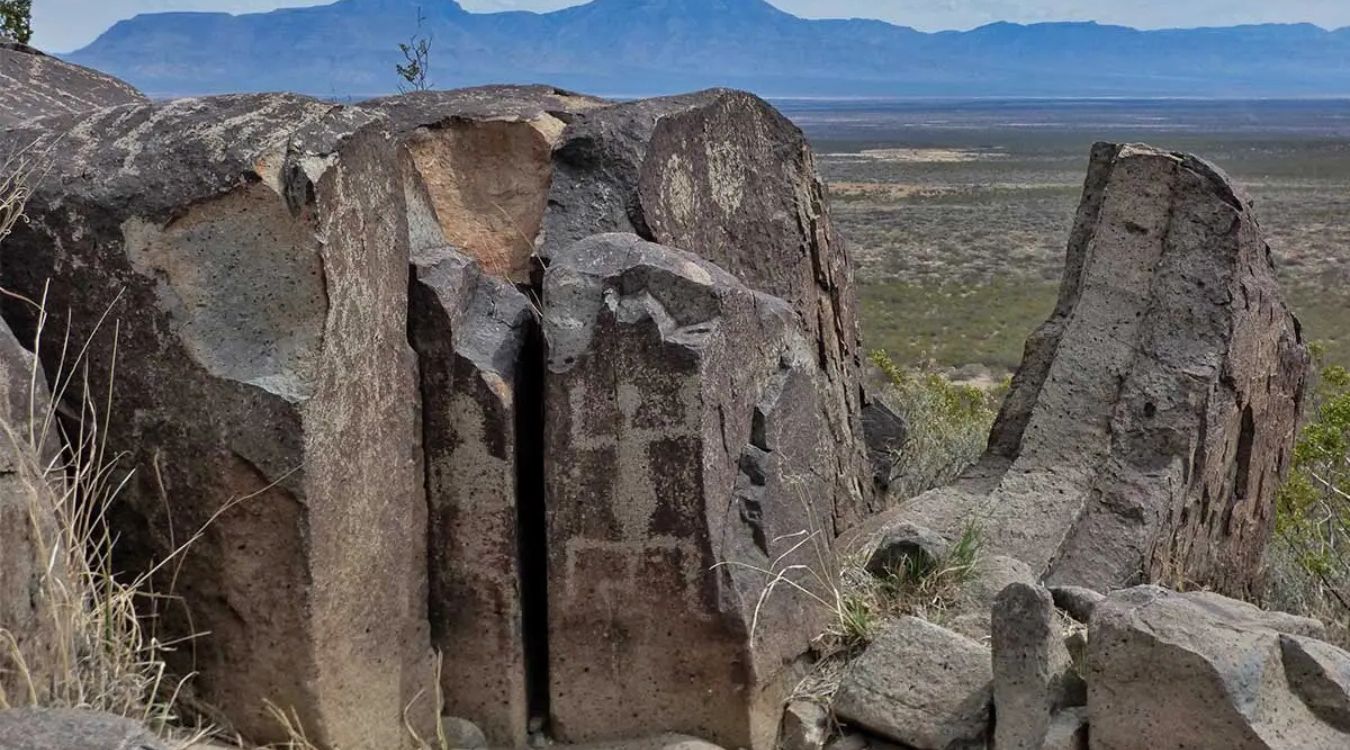Secrets Of New Mexico’s Three Rivers Pictographs

Have you ever wondered about the ancient stories hidden in the rocks of New Mexico? The Three Rivers Pictographs site offers a glimpse into the past with over 21,000 petroglyphs etched into the volcanic rock. These images, created by the Jornada Mogollon people between 900 and 1400 AD, depict animals, humans, and mysterious symbols. Visiting this site feels like stepping back in time, where each rock tells a unique story. Whether you're a history buff or just love exploring, the Three Rivers Pictographs provide a fascinating look into the lives of those who lived centuries ago. Ready to uncover these ancient secrets?
Secrets of New Mexico's Three Rivers Pictographs
New Mexico's Three Rivers Petroglyph Site is a treasure trove of ancient rock art. With over 21,000 petroglyphs, this site offers a glimpse into the lives and beliefs of the Jornada Mogollon people who lived here over 1,000 years ago. Let's explore some of the most fascinating pictographs you can find at this incredible site.
1. The Spiral
Spirals are one of the most common motifs in ancient rock art. They often symbolize life cycles, journeys, or the sun. At Three Rivers, the spiral designs are intricate and varied, showcasing the artistic skill of the Jornada Mogollon people.
2. The Masked Face
One of the most striking images at Three Rivers is the masked face. This pictograph features a human face with elaborate headgear, possibly representing a shaman or deity. The details in the carving suggest it held significant cultural or spiritual importance.
3. The Animal Figures
Animal figures are abundant at Three Rivers. These carvings include deer, snakes, birds, and even mountain lions. Each animal likely had symbolic meanings, possibly related to hunting, fertility, or clan totems.
4. The Geometric Patterns
Geometric patterns, such as grids, circles, and zigzags, are scattered throughout the site. These designs might have been used for calendrical purposes, mapping, or as part of ritualistic practices. Their precise and repetitive nature indicates a deep understanding of mathematics and symmetry.
5. The Human Figures
Human figures in various poses and activities are also present. Some depict hunting scenes, while others show people dancing or engaging in rituals. These images provide a window into the daily life and social structure of the Jornada Mogollon people.
6. The Handprints
Handprints are a universal symbol found in rock art worldwide. At Three Rivers, these prints are often accompanied by other symbols, suggesting they might have been used to mark territory, record events, or as part of initiation rites.
7. The Abstract Symbols
Abstract symbols, such as spirals, dots, and wavy lines, are plentiful. These enigmatic designs are open to interpretation but might represent natural elements like water, wind, or celestial bodies. Their abstract nature invites viewers to ponder their meanings.
8. The Sunburst
The sunburst is a captivating design featuring radiating lines from a central point. This symbol likely represents the sun, a vital element in many ancient cultures. Its presence at Three Rivers highlights the importance of solar worship and agricultural cycles.
9. The Serpent
Serpents are powerful symbols in many cultures, often associated with fertility, rebirth, and the underworld. The serpent carvings at Three Rivers are detailed and dynamic, reflecting the creature's significance in Jornada Mogollon mythology.
10. The Star Patterns
Star patterns, including clusters and single stars, are also found at the site. These designs might have been used for astronomical purposes, helping the Jornada Mogollon people track celestial events and navigate their world.
11. The Birdman
The Birdman is a unique pictograph featuring a human figure with bird-like attributes. This image could represent a shaman in a trance state or a mythical being. Its distinctiveness sets it apart from other carvings, making it a must-see.
12. The Hunting Scenes
Hunting scenes are prevalent, depicting hunters with bows and arrows targeting animals. These images not only illustrate daily life but also highlight the importance of hunting in sustaining the community.
13. The Fertility Symbols
Symbols related to fertility, such as phallic shapes and birthing scenes, are also present. These carvings underscore the significance of reproduction and the continuation of the community.
14. The Water Imagery
Water imagery, including waves and rain symbols, is common. These designs likely represent the essential role of water in agriculture and daily life, emphasizing its sacredness.
15. The Mythical Creatures
Mythical creatures, combining elements of different animals, are some of the most intriguing carvings. These fantastical beings might represent gods, spirits, or legendary heroes, adding a layer of mystery to the site.
16. The Clan Symbols
Clan symbols, unique to specific groups within the community, are also found. These markings might have been used to denote territory, lineage, or social status, providing insight into the complex social structure of the Jornada Mogollon people.
Why Visit Three Rivers Pictographs
Three Rivers Pictographs offer a unique glimpse into ancient history. These rock carvings, created by the Jornada Mogollon people, tell stories that have lasted for centuries. Walking among these pictographs feels like stepping back in time. The site is not just about the carvings; the surrounding landscape is stunning, with desert views and mountain backdrops.
Visiting this site is easy, with well-marked trails and informative signs. It's a great spot for families, history buffs, and anyone who loves the outdoors. Don't forget to bring water, wear good shoes, and respect the site by not touching the carvings.
Three Rivers Pictographs are a hidden gem in New Mexico. They offer a mix of history, culture, and natural beauty. Make sure to add this fascinating place to your travel list.

